Mythology for Kids: The National Mythology Exam
I sent in the exam yesterday. My daughter had 40 minutes to complete the first section which consisted of 40 multiple-choice questions. It didn’t take that long. What will be interesting is to see how she does because she loves, loves, loves mythology but she did not have the right books to prepare for this examination nor the desire to study. And why should she? This was just for fun. If she gets a certificate or not, either way, it’s no big deal. Truly, the certificate would have eventually ended up in the trash anyway. I did buy TODAY (so too late for the party!) all the books on the list except for D’aulaire’s Book of Greek Myths, The Iliad, The Odyssey, and The Aeneid.
She read these books instead:
Edith Hamilton’s Mythology and Timeless Tales of Gods and Heroes
The Adventures of Odysseus by Hugh Lupton (which she is loving and was given to me by Barefoot Books)
———————-
My oldest wanted to take this test for fun, and really, it’s just for bragging rights because if you do pass this rigorous exam all you get is a certificate. Some kids are studying for the exam and forming after-school study clubs but my daughter just wanted to wing it and see how she does. She does love mythology, particularly Greek, and has read Percy Jackson, ALL of them, plus Edith Hamilton’s books on Mythology and Timeless Tales of Gods and Heroes which reads very pleasantly as short stories.
I managed to get the form and check on the last day it was due and the National Mythology Exam folks sent me a study guide. I just wanted to share their book list. I took a class as an undergraduate at Harvard on Mythology, nicknamed “Heroes for Zeros,” which was actually a really great class though perhaps not the most stressful class I’ve ever taken and we read some of these same books; the Lattimore translation of The Iliad, The Odyssey and The Aeneid though I can not for the life of me remember who translated it. There was also a class for Norse mythology. I didn’t take it but some friends of mine did. Guess what that was nicknamed? “Frozen Heroes for Zeros.” Though given the New England weather, it could also be called “Sub Zero Heros for Zeros” just as easily!
Bibliography for 2011 National Mythology Exam
General Mythology Section: 30 questions required by all students who take exam.
Ancient Beginnings: Next 10 questions are required of students in grades 5-, and optional for grades 3 and 4.
Literary Subtests: Students in grades 3 through 5 may choose to take no subtest or one or more subtest. Students in grades 6 through 9 must take at least one subtest.
Grades 10-12 may take this exam. They must take General Mythology section, Ancient Beginnings, and at least one literary subtest of their choice: the Iliad, the Odyssey, or the Aeneid. They may also take additional subtests of their choice.
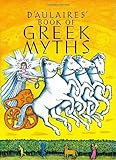 D’Aulaire’s Book of Greek Myths by Ingri and Edward d’Aulaire. pp. 1-62, 186-187 for General Mythology Section and pp. 70-79 for Ancient Beginnings (Grades 10-12)
D’Aulaire’s Book of Greek Myths by Ingri and Edward d’Aulaire. pp. 1-62, 186-187 for General Mythology Section and pp. 70-79 for Ancient Beginnings (Grades 10-12)
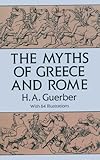 The Myths of Greece and Rome by H.A. Guerber. pp. 1-175 plus index for General Mythology Section and pp. 1-26 and 185-185 for Ancient Beginnings.
The Myths of Greece and Rome by H.A. Guerber. pp. 1-175 plus index for General Mythology Section and pp. 1-26 and 185-185 for Ancient Beginnings.
 American Indian Myths and Legends by Richard Erdoes and Alfonso Ortiz. pp. 53-60 and pp. 83-85 for Literary Subtests.
American Indian Myths and Legends by Richard Erdoes and Alfonso Ortiz. pp. 53-60 and pp. 83-85 for Literary Subtests.
 Tales from Africa by Kathleen Arnott. pp. 1-4, pp. 79-85 and pp. 135-136 for Literary Subtests
Tales from Africa by Kathleen Arnott. pp. 1-4, pp. 79-85 and pp. 135-136 for Literary Subtests
 d’Aulaire’s Book of Norse Myths by Ingri and Edward d’Aulaire. pp. 96-116 for Literary Subtests.
d’Aulaire’s Book of Norse Myths by Ingri and Edward d’Aulaire. pp. 96-116 for Literary Subtests.
 Iliad, Lattimore translation. Book 1 only for Literary Subtests (Students must take basic 30-tem
Iliad, Lattimore translation. Book 1 only for Literary Subtests (Students must take basic 30-tem
 The Odyssey, Fitzgerald translation. Book 10 only.
The Odyssey, Fitzgerald translation. Book 10 only.
 The Aeneid, Fitzgerald translation. Book 2 only.
The Aeneid, Fitzgerald translation. Book 2 only.
Thank you to Carrie of Clew Publishing and author of Panorama: An Introduction to Classical Mythology for this book recommendation. She joined the National Mythology Exam Committee this month. See her comment below.
To examine any of the items listed, please click on image of item. As an Amazon Associate, I earn from qualifying purchases.
BEST #OWNVOICES CHILDREN’S BOOKS: My Favorite Diversity Books for Kids Ages 1-12 is a book that I created to highlight books written by authors who share the same marginalized identity as the characters in their books.

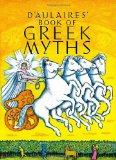
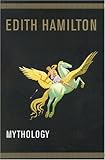



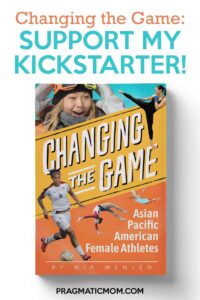
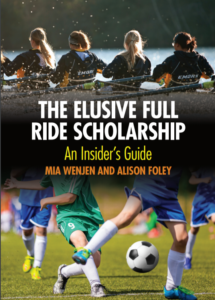

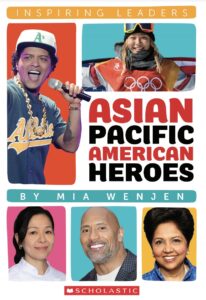

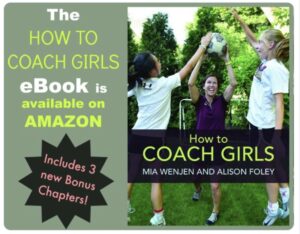


I love this! and I was thrilled to see that I have all of those books on my shelf except the stories from Africa (although I have another one)! Mythology and the stories from all different cultures are a great way for kids to learn – great post!
Hello to All.
If you’re interested in helping your kids understand the cultural relevance of studying mythology, “Panorama: An Introduction to Classical Mythology” would be a great read. I am a former teacher and wrote the book because even when kids know a lot about myth, few books help them make the interdisciplinary connection between mythology and science, literature, vocabulary, art, and popular culture.
Please check out my website, or feel free to have your children contact me through email with any questions they may have.
All best,
Carrie Kennedy
To Carrie,
Thank you for this great resource!
Love this post! We are also into Mythology – Great book list even if you are not taking the exam. The Odyssey (Fitzgerald translation) is the book used for Freshman English at Newton North.
To CapabilityMom,
Thank you so much! Glad your daughter likes the list AND mythology! I can’t believe she’s reading in high school; I read these in college!!! (Odyssey, Iliad, etc. Fitzgerald and Lattimore translations).
I have been teaching in Virginia for over 20 years. I piotled the inclusion program in Virginia Beach over 20 years ago & attended training at William & Mary. My youngest son has an IEP due to the learning difficulties he encounters from ADD/ADHD issues. After working in the inclusion setting for several years, I realized that many students with IEPs have many unidentified talents. I went on to pursue my gifted endorsement from UVA so I could offer higher level thinking skills for those students. I have gone round & round with 2 different school systems about qualifying my now dual identified son (IEP & Gifted & Talented) for SPED services. I really think we need to change the title from special ed to something more pertinent. These students are truly special & wonderful, but the term is demeaning in an educational setting. I think something like Educational Enrichment would be more appealling to parents & students especially at the middle & high school levels where students tend to drop out due to learning difficulties. I found your articles very helpful. Even as an educator, I find the IEP world to be a maze with many obstacles that can be used to baffle everyone involved. I would be interested to hear if anyone has looked into the negative connotation of special ed and how it affects the educational environment. I have 2 students in my classroom now that have IEPs, but would rather fail than receive help from the SPED teacher they will sometimes let me help them, but that puts a strain on the help I am able to give the other students in my classroom that don’t have IEP services. Thanks for providing this information to parents.
Hi Angela,
We don’t have a Gifted and Talented Program at my kids’ elementary school so we don’t have same IEP/GATE duality. I haven’t done any research on negative connotations of being labeled Special Ed but I can imagine that there are. I will keep my eyes out for the research and will post on it for you.